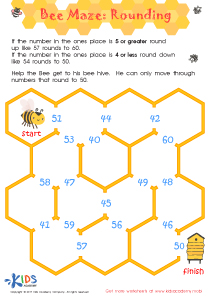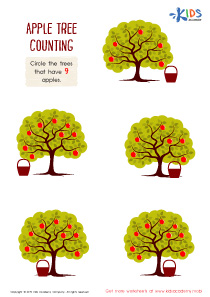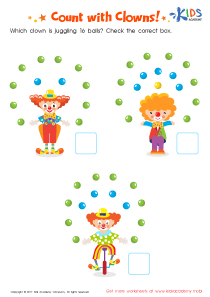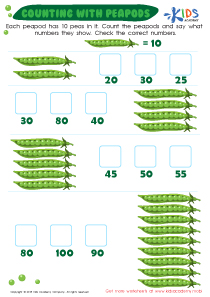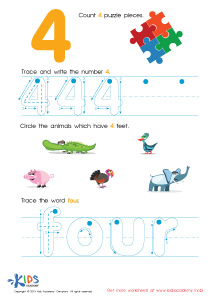Extra Challenge Comparing Numbers Worksheets for Ages 3-6
4 filtered results
-
From - To
Introducing our "Extra Challenge Comparing Numbers Worksheets for Ages 3-6" – a perfect educational tool designed to enhance your child's math skills in a fun and engaging way. These carefully curated worksheets, available for free download, provide a delightful mix of comparing and counting activities that will solidify foundational number concepts. With visually appealing graphics and age-appropriate challenges, your little learners will enjoy differentiating between greater, smaller, and equal numbers, boosting their confidence while they learn. Ideal for preschoolers and kindergarteners, these worksheets are an excellent addition to both classroom and at-home learning routines. Get started today!
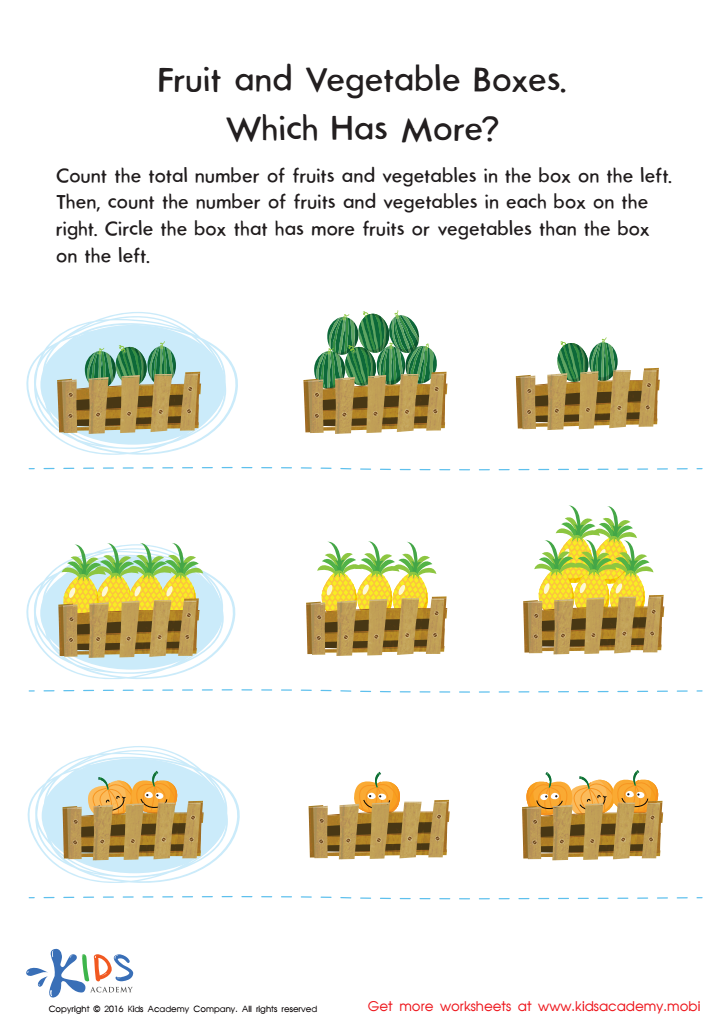

Which Has More? Size Worksheet
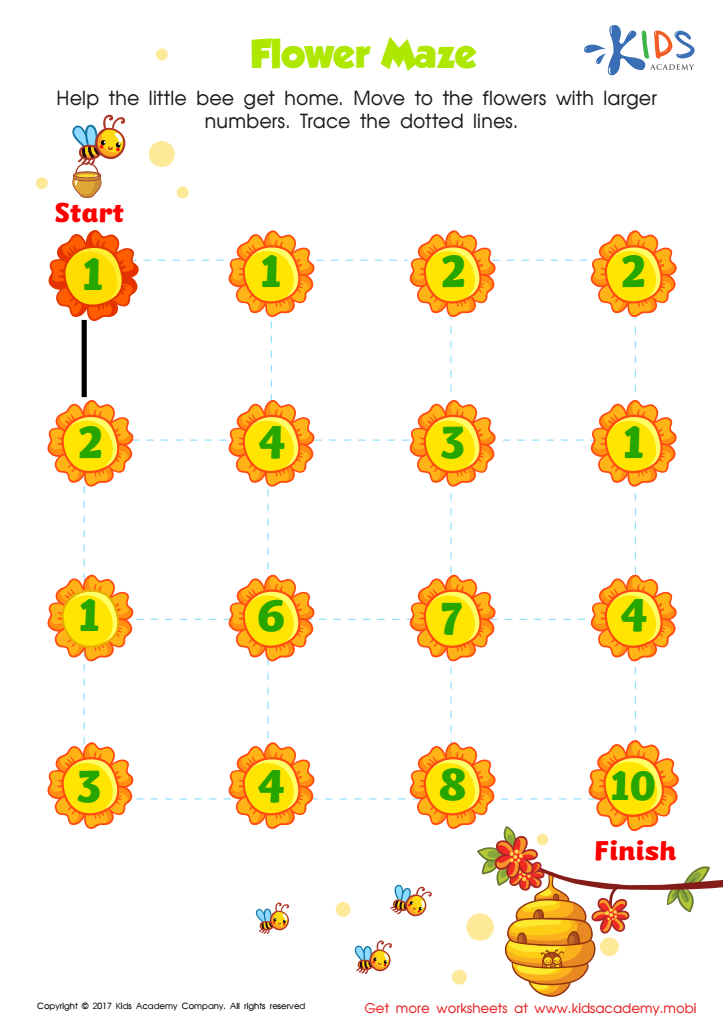

Number Maze For Kindergarten Printable
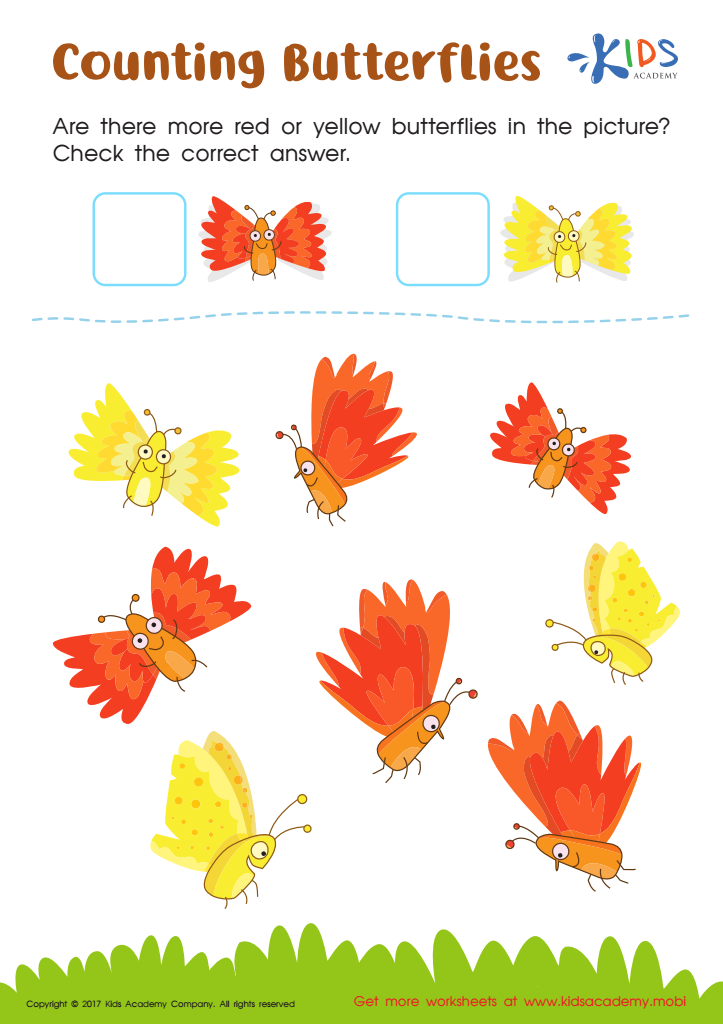

Counting Butterflies Worksheet
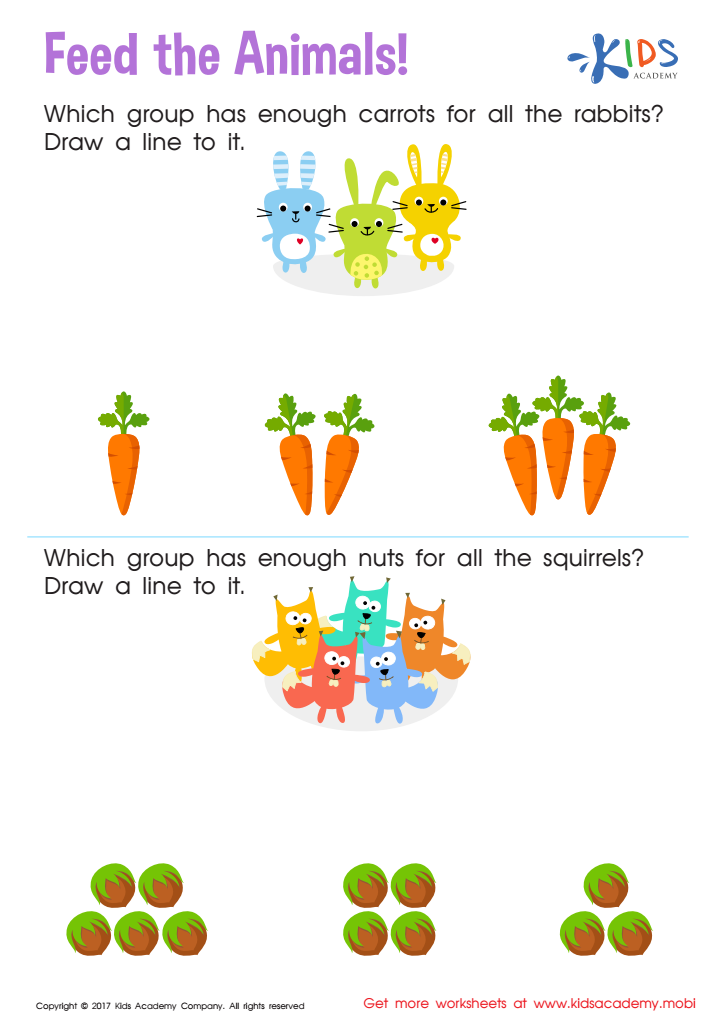

Count and Match: Feed the Animals Worksheet
Parents and teachers should care about Extra Challenge Comparing Numbers for ages 3-6 because it builds crucial foundational math skills in a fun, engaging way. At this stage, children are developing their number sense – their ability to understand, relate, and connect numbers. Comparing numbers activities encourage students to think critically about numerical values, order, and magnitude. These skills are essential for more advanced mathematical concepts they will encounter later, such as addition, subtraction, and place value.
Engaging children in comparing numbers with extra challenge tasks also aids in cognitive development, enhancing their problem-solving abilities and logical reasoning. It introduces them to concepts like greater than, less than, and equal to, which are fundamental for everyday math use. Additionally, at the ages of 3-6, children learn best through play and interactive challenges. This type of activity can make learning math joyful and help instill a positive attitude towards mathematics, alleviating future math anxiety.
Furthermore, parental or teacher involvement in these activities fosters a supportive learning environment, showing children that their educational growth is valued. This support can boost their confidence and motivation to tackle new challenges. Therefore, engaging young children in such exercises equips them with essential skills for their academic growth and fosters a love for learning.

 Assign to the classroom
Assign to the classroom






